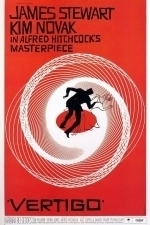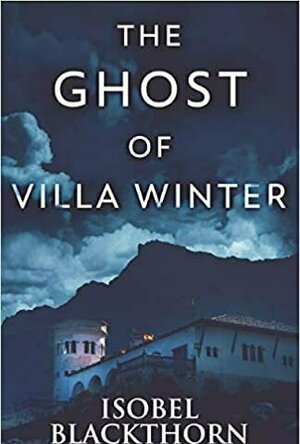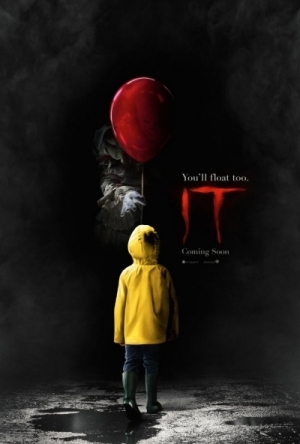Andy K (10823 KP) rated Vertigo (1958) in Movies
Oct 20, 2019
Once revived, Madeleine is no worse for wear, but does not remember the incident or the circumstances of her rescue at the hands of Scottie. They form a quick friendship that turns quickly into lust and a deepening feeling of obsession for Scottie. One day, they take a trip to Mission San Juan Bautista based on a nightmare vision described by Madeleine. She climbs the bell tower, but Scottie is unable to follow restrained by his vertigo and, unfortunately, has to just watch as she plunges to her death.
Afterwards, an investigation reveals Madeleine had been exhibiting irrational behavior which was the cause of her husband's concern in hiring Scottie, so her death is ruled a suicide. Scottie is distraught over the loss and takes consolation in his friend, Midge. On the mend, Scottie frequents locations Madeleine had visited previously hoping this would offer consolation to his grief. He meets a familiar, yet strange woman there.
Vertigo is usually not only considered Hitchcock's best film, but also on many critic lists as the greatest film of all time alongside Citizen Kane and Casablanca.
The movie does have a lot to admire including its complicated, intriguing screenplay which had smart discussions with its characters with lots of exposition given at various points challenging the audience to keep up. The film's situations are interesting and the plot keeps going at a vicious pace through the twists to the end.
I learned recently Hitchcock diva Vera Miles was initially cast for the role of Madeleine, but had to withdraw as she became pregnant before filming so Kim Novak replaced her. Due to several unforeseen delays, Miles had given birth and could've been available; however Hitchcock forged ahead with Novak anyways.
The harrowing initial scene where Scottie chases a random perpetrator across blackened rooftops only to stumble and discover his title affliction really sets the tone for the film both with the cinematography which is stunning and the blistering score at full pace.
Picking an absolute favorite Hitchcock movie has always been difficult for me. Vertigo would probably rank 3rd behind Psycho and The Birds, but still all masterpieces. I love the fact as in other Hitchcock classics, you think you know where the story is going, but he always keeps you guessing.
A magnificent performance by Jimmy Stewart as well. Well deserved of the praise he has gotten over the years for it. He is intense, charming and morose throughout the film which makes him electrifying to watch. His work with Hitchcock including Rope and Rear Window is among his best work.
A masterpiece.

Raw Data
Video Game Watch
Neo-Shinjuku - 2271. The massive and seemingly benevolent Eden Corporation owns the world. The elite...
action multiplayer

JW Companion
Productivity and Business
App
JW Companion is the most capable application on iOS device for Jehovah's Witnesses. Books, Magazine,...

The Great Prank War
Games and Entertainment
App
Help Mordecai, Rigby, Muscle Man and Skips take the park back from Gene and his goons with a...

VR Hollywood Blvd by Car Virtual Reality 360
Entertainment and Travel
App
Nice VR experience and beautiful memories if you already were there or if not, gain experience as if...

Bus Times London
Navigation and Travel
App
Bus Times London is the ultimate travel app. Check TfL bus times to see if yours is running late,...

Geo Walk: World Factbook & Natural Science for Kid
Education and Entertainment
App
Geo Walk is a world fact book about animals, plants, historical events,famous people and inventions....
Hadley (567 KP) rated The Ghost of Villa Winter in Books
Mar 12, 2021
We begin our journey with Clarissa ,our main character, boarding a tour bus where she lets her personality shine through, which turns out to be extremely judgmental of anyone who isn't like her, or doesn't fit into the categories she places them in. For example, the driver of the tour bus is automatically labeled by Clarissa as a bad man because he has an uneven face and a French accent, and much of the same is said about the other seven passengers, as well. When she finally manages to stop judging the passengers, readers find out that Clarissa is somewhat of a psychic: "Ghosts spoke a language of their own and if a member of the spirit world inhabited the abandoned abode, she was sure to pick up on it. She was never wrong in these matters. Only three of the thirty or more premises she'd investigated on so-called ghost tours had contained a legitimate ghost. She prided herself on her mediumistic prowess. She was apt to pick up on preternatural inhabitants of places said not to be haunted. Sometimes she thought she could singlehandedly re-write history based on information she had gleaned, but that was being arrogant. She followed her dreams and her visions and her intuition, that was all. A natural psychic and a cynic to boot. "
It turns out that Clarissa is on the tour to see if she can encounter any spirits that may be at the infamous Villa Winter; a place that is believed to have been a secret Nazi base, as well as a place for human experiments - - - the tower was also believed to have been used as a lighthouse for German U-boats - - - which, in reality, Villa Winter is an actual place that exists on the Canary Islands in Spain.
The Ghost of Villa Winter is the fourth book in Blackthorn's Canary Islands Mysteries series, but it can be easily read as an introduction to it because you don't need any background information to understand what is going on. The novel takes on the usual tropes of a murder-mystery plot (a body is found, people are stranded and trying to figure out who among them is the murderer). Agatha Christie is one of the best authors of the murder-mystery genre who loved using her knowledge of poisons in her stories - - - Blackthorn treats the tropes with the right amount of respect which makes The Ghost of Villa Winter a pretty good story.
My major complaint for the Ghost of Villa Winter are the characters, which I found every single one quite unlikable, and even by the end, I couldn't bring myself to care at all for Clarissa. The way that she judged everyone so harshly, and her viewpoint that if no one acted the way she wanted them to, she would believe something was wrong with them that needed to be addressed in a rude manner: "He was the most anxious man she had come across in a long time. Anxious, unsure of himself and preoccupied. Far too self-conscious. The way he'd aligned his plate at lunch. That was obsessive-compulsive. And he certainly couldn't handle Fred Spice. She was sure he could be charming with pretty young ladies, patronizing even, but around her he was awkward. It was clear, too, that he was broken. It wouldn't be easy being an author knowing as you aged that all of your success was behind you and your future held nothing but diminishment. Writing was one of those activities you could pursue until you dropped and many successful authors did just that. As irritating as he could be, she felt sorry for him. "
The other characters are all seen from Clarissa's viewpoint, so they come off quite annoying, but at one point it seemed like Blackthorn was trying to redeem Clarissa's negative qualities by making her an advocate for a possibly wrongly convicted man. This story line didn't come off as redemption for me, but rather to fuel Clarissa's need to be important and in the right. Blackthorn failed to make any of the characters grow above pettiness. If a reader doesn't have a character to root for, the story becomes unenjoyable - - - which is the main reason I gave the book such a low rating; the murder-mystery was interesting, but the characters were not.
The murder, a woman who may have been part of a cult, is found inside a nailed-up crate with a tattoo of a number on her body being one of the only clues that puts Clarissa into sleuth-mode. After believing that one of the tourists is the killer, she decides to keep the discovery of the murder between her and Richard - - - a crime author who came to Villa Winter in hopes of a book inspiration. The two slowly begin to investigate their fellow tourists to figure out who had the mind and motive to kill the young woman, but this doesn't seem to be as easy as it is in Richard's books. I did have a problem though with the ending which ends up being very reminiscent of a majority of short stories: the ending came abruptly and the pieces fell into a place that was unbelievable.
I had never read any of Blackthorn's books before, so I didn't have much of an expectation reading the Ghost of Villa Winter. Unfortunately, I came away from this one pretty dissatisfied because all of the interesting points in the story (such as the cult) are rarely shown/explored further. Also, the fact that 'ghost' is in the title, I was pretty let down with only a couple of scenes where a ghost actually shows up, one such short-lived scene: "She [Clarissa] was about to carry on when a figure appeared in one of the uppermost tower windows. Appeared, and then was gone. At least, what she thought to be a figure. Could have been a ghost. " The scenes are so short that I believe 'ghost' shouldn't be in the title because it's misleading.
With quite a few amateur writing mistakes, and unlikable characters, I don't think I will read anymore of the books in this series. I loved the idea of a cult murder and a haunting in a possible Nazi base, but too much of the focus in the story was on Clarissa's judgmental outlook on everything that it ended up not being the story it could have been. I can only recommend this book to people who want a quick murder-mystery (what most call the genre 'cozy mystery'), but for paranormal lovers, the ghosts practically disappeared within a few pages.
Movie Metropolis (309 KP) rated It (2017) in Movies
Jun 10, 2019
Plagued with production problems from the get-go, I see a pattern emerging here, IT has been in the hands of multiple directors with numerous actors in the running to play that iconic clown. I am of course, talking about Pennywise.
Fast forward to 2017, and with Mama Andy Muschietti taking over directorial duties and Bill Skarsgård hopping into that tight-fitting suit we finally have a finished product. But what is it like?Seven young outcasts in Derry, Maine, are about to face their worst nightmare — an ancient, shape-shifting evil that emerges from the sewer every 27 years to prey on the town’s children. Banding together over the course of one horrifying summer, the friends must overcome their own personal fears to battle the murderous, bloodthirsty clown known as Pennywise.
Let’s start off by saying this is much, much better than last month’s The Dark Tower. Stephen King adaptations can go one of two ways and it was feared that IT would follow in the aforementioned film’s footsteps. Thankfully, this isn’t the case.
IT is frankly, an incredible interpretation of King’s iconic novel filled with exceptional performances, stunning cinematography and an emotional heart not normally seen in the genre. It’s unlike anything you will have seen before.
Now, let’s talk about the elephant in the room, Pennywise. Tim Curry played the hell out of that character in the 1990 miniseries and it would be senseless for 27-year-old Bill Skarsgård to follow too closely in his footsteps. At 6ft 3”, Skarsgård is certainly an imposing presence and his Pennywise is much more menacing than Curry’s, but to compare them too much would be unfair to each.
Elsewhere, all the members of the Losers’ Club are brilliant. I have never seen this calibre of acting from such a young group. Jaeden Lieberher as Bill in particular is astonishing. The scenes in which they all work together without the threat of Pennywise are a treat and give the film an uncharacteristically poignant style.
Moreover, the shot choices that Muschietti uses are striking. He rightly stays away from confining the horror to dimly lit corridors and alleyways and whilst this does feature more towards the finale, Derry makes a fine location bathed for the most part in gorgeous sunlight.
Whilst not being completely faithful to King’s novel, Muschietti’s film features all of the iconic scenes that you would expect. The opening sequence from the book in which little Georgie is confronted by Pennywise in the storm drain is shockingly brutal and sets up the tone for the rest of the picture.
This is a truly frightening film, speckled with just enough gore to keep it realistic and whilst it’s true there are one-too-many jump scares, the brilliant source material stops them from feeling too cheap. In the back of your mind, you’re well aware that this is very similar to the book indeed.
Overall, IT is better than anyone could have hoped. It’s scary, deeply emotional, funny and beautifully filmed with an exquisite score by Benjamin Wallfisch. If you’re a horror fan you must watch. If you’re a film fan, you must watch – just take a pillow with you, for protection purposes of course.
https://moviemetropolis.net/2017/09/09/it-review-make-sure-you-take-a-pillow/
David McK (3562 KP) rated Blood's Game in Books
Jan 30, 2019
This, however, would be the first time I had read one of Donald's novels that concerned a different central character, and that had a different setting: would it, I wondered, be more of the same, or would it have it's own 'feel'?
The answer, I can now say, is the latter.
Replacing Alan-a-Dale with Holcroft Blood, and told in the more traditional her-and-know third-person narrative (instead of the conceit of an elderly Alan recalling his youthful adventures with Robin Hood), this particular novel deals with the (attempted) theft of the Crown Jewels from the Tower of England during the reign of King Charles II, not long after the restoration.
While that (attempted) theft is carried out by Thomas Blood - who was caught red-handed but later, incredibly, was granted a pardon by Charles II - this novel does not have Thomas as the central character: rather, instead, we follow the fortunes of his youngest son Holcroft: a son who, throughout the course of this novel, becomes friends with Sir John Churchill, the future Duke of Marlborough (and Winston Churchill's direct descendant).
Whether true or not, young Holcroft is portrayed in this as suffering from a mild form of Asperger's Syndrome, able to easily code and decode correspondence sent to his master The Duke of Buckingham from his various spies and informants: a skill that comes in handy in this tale! I have to say, too, that the court of King Charles II comes across as incredibly decadent, full of scheming and back-stabbing rivals out wholly for themselves ...
I'd be interested in seeing where this series goes, especially as the next entry ([b:Blood's Revolution|36146468|Blood's Revolution|Angus Donald|https://images.gr-assets.com/books/1504033386s/36146468.jpg|57749834]) concerns itself - at least, according to the blurb at the back of this - with what is (in this country - Northern Ireland - at least) a very divisive and pivotal moment in English history.



